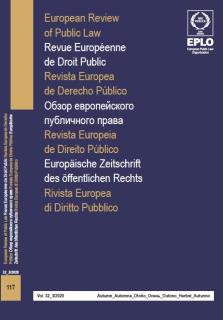
Towards the Determination of the Content of the Right
to an Effective Remedy in the European Union
Evolution and Constitutional Standards
Professor of Administrative Law, Autonomous University of Madrid
The Court of Justice confirmed early that the principle for effective judicial protection is a general principle of EU law. At the same time the Court recognised similar contents by means of the well-known ‘Rewe test’. With the entry into force of the Lisbon Treaty and the EU Charter of Fundamental Rights, the foundation of case-law turned to Article 47 of the Charter, detecting progresses which suggest that the Court has assumed the task of conferring to said precept the effectiveness and the proper content that the protection of the rights recognised by EU law demands. In this paper we expose the argumentative lines to which the Court has resorted to support the aforementioned fundamental right. Secondly, the common legal bases of these case-law lines are revealed, trying to show that there have not been qualitative differences that prevent from posing a unitary configuration of a same and unique right. Lastly, the intention is to define the content of this right with an integrative interpretation. This aim shows that the efficacy and content of the right have had an evolution that converges in similar fundamental parameters. Those parameters are materialised in levels of protection that, in general terms, are potentially more demanding than those derived from national constitutions.
La Cour de justice a très tôt confirmé que le principe de protection juridictionnelle effective était un principe général du droit de l’Union. En même temps, la Cour a reconnu des contenus similaires au moyen du fameux “Rewe test”. Avec l’entrée en vigueur du traité de Lisbonne et de la Charte des droits fondamentaux de l’UE, la jurisprudence s’est fondée sur l’article 47 de la Charte, marquant une évolution qui suggère que la Cour a assumé la tâche de conférer au principe susmentionné l’efficacité et le contenu appropriés qu’exige la protection des droits reconnus par le droit de l’Union. Nous exposons dans cet article les raisonnements auxquels la Cour a eu recours pour soutenir le droit fondamental susmentionné. En second lieu, nous mettons en évidence les bases juridiques communes de ces arguments de la jurisprudence, en essayant de montrer qu’il n’y a pas eu de différences qualitatives empêchant de poser une configuration unitaire d’un même et unique droit. Enfin, l’intention est de définir le contenu de ce droit par une interprétation intégrative. Cet objectif montre que l’efficacité et le contenu du droit ont connu une évolution qui converge dans des paramètres fondamentaux similaires. Ces paramètres se matérialisent en des niveaux de protection qui, en termes généraux, sont potentiellement plus exigeants que ceux qui découlent des Constitutions nationales.
*Supported by the Research project ‘Transnational public relations in the internal market and administrative justice’ (DER2017-84500-P) Spanish Ministry of Science, Innovation and Universities.





















